
- •Южный федеральный университет о. И. Сафроненко
- •Southern Federal University
- •Предисловие
- •Contents
- •In this module you will
- •Focus on Language
- •Keep learning? Keep earning!
- •What are effective study habits?
- •In this module you will
- •Focus on Language
- •In this module you will
- •Starting Your Haunt of Treasures
- •“A university is just a group of buildings gathered around a library.” Shelby Foote
- •In this module you will
- •Unexpected Discoveries
- •Metric system microscope thermometer telescope
- •Invention /discovery
- •Breakthroughs of the 20th century
- •Verb Suffixes
- •Inventor
- •Double-edged sword
- •Learning Objectives
- •In this module you will
- •Discuss
- •Environmental Hazards of the Computer Revolution
- •Work in teams of three. Make as many words as possible using the prefixes re-, dis-, over-, sub-, en-, up- . Compare as a class.
- •The advent of “green” computer design
- •Learning Objectives
- •In this module you will
- •Science for the Twenty-First Century
- •Discuss
- •Learning Objectives
- •In this module you will:
- •Part-time Jobs vs. Holiday Jobs
- •Scripts Module 1 Unit 1
- •Module 1 Unit 2
- •Module 2 Unit 1
- •Module 2 Unit 2
- •Module 3 Unit 1
- •Module 3 Unit 2
- •Module 4 Unit 1 Abacus
- •Module 4 Unit 2
- •Module 5 Unit 1
- •Module 5 Unit 2
- •Module 6 Unit 1
- •Module 6 Unit 2
- •Module 7 Unit 1
- •Module 7 Unit 2
- •Interviewer
- •Interviewer
- •Interviewer
- •Literature
- •Grand Rosenberg The New Breed// 1995 Retrieved from http://en.Wikipedia.Org/wiki/The_New_Breed_%28episode%29
- •Part-time Jobs vs. Holiday Jobs// Retrieved from e4s:co uk http://www.E4s.Co.Uk/docs/part-time-jobs.Htm
- •Internet recourses
Starting Your Haunt of Treasures
The word ‘library’ is derived from Latin ‘liber’, which means "book".
A primary function of a library is to store information published throughout time. Here you can find very current information as well as books that are no longer published and older issues of magazines.
L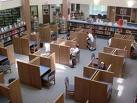 ibraries
have large collections of information on a variety of carefully
selected and organized topics from the sources considered reliable,
historically relevant, and valuable. The key idea when using the
library is that you are getting
ibraries
have large collections of information on a variety of carefully
selected and organized topics from the sources considered reliable,
historically relevant, and valuable. The key idea when using the
library is that you are getting
|
|
Magazines publish articles on topics of popular interest and
current events. The articles are written by journalists and are for
the general public.
|
|
|
Journal articles and papers are written by scholars in an academic or professional field. They cover very specific topics or narrow fields of research. |
|
|---|---|---|---|
|
|
|
||
|
|
|
|
|
|
|
|
(Adapted from http://ulibnet.mtsu.edu.html)
-
Match the sources of information with the appropriate tips. Discuss which key words helped you to do the task.
Sources:
|
1 a magazine |
5 a journal |
|
2.a book (D) |
6 a newspaper |
|
3 an encyclopedia |
7 the Web |
|
4 a catalogue |
8 an article index |
Tips:
(A)
to find current information about international, national and local events
to find editorials, commentaries, expert or popular opinions
(B)
to find information or opinions about popular culture
to find up-to-date information about current events
to find general articles written for people who are not necessarily specialists in the topic area
(C)
when doing scholarly research
to find out what has been studied on your topic
to find bibliographies that point to other relevant research
(D)
when looking for a lot of information on a topic
to put your topic in context with other important issues
to find historical information
to find summaries of research to support an argument
(E)
to find current information
to link to information provided by the library over the Internet
to find information about companies
to find information from all levels of government - federal to local
to find both expert and popular opinions
(F)
when looking for background information on a topic
when trying to find key ideas, important dates or concepts
(G)
when you want to find articles on your topic in magazines, journals or newspapers
(H)
to find out sources of information the library owns on your topic
to find where a specific item is located in the library
|
Writing |
|
Fill in the spaces in the subscription and registration form.
|
The Sci-Fi World
Subscription & Renewal Free Registration Form
Registration provides free and instant access to breaking news, reviews, online classifieds and more featured stories on the Sci-Fi World. Use this form to order a new subscription, renew your subscription, and/or order recent back issues of the magazine. Items marked * are required.
Choose a Member ID*_______________________________________________________
Choose a Password*_________________________________________________________ (five characters minimum)
Re-enter your Password*_____________________________________________________
E-Mail Address* __________________________________________________________
Why do we need this? The Sci-Fi World will only use this address with your permission.
Tell Us About Yourself
Gender* ________ Male _______ Female
First name* __________________________________________________________
Last name* __________________________________________________________
Date of Birth* __________________________________________________________
ZIP Code* __________________________________________________________
Country of Residence*_______________________________________________________
Address* __________________________________________________________
Household Income: _______________________________________________________
Job Title*: (Tick one)
Industry*: (Tick one)
The Sci-Fi World will never share your information, including your e-mail address, without your explicit permission. View our Privacy Policy.
Check to make sure you have entered all the information correctly, then click the "Submit Form" button.
|
|
Get Real |
|
Find in the Internet and subscribe to any free magazine or journal. Report back the results of the subscription. Give reasons for your choice of the periodical.
|
Listening |
-
You are going to listen to a librarian explaining to students the difference between various types of periodicals. Listen to the lecture and complete the chart.
|
Discuss
-
What new information have you learnt from the lecture on periodicals?
-
How can you apply this new information to your studies and life in general?
-
Do you think you need any additional information about library sources?
Focus on language
-
Read these sentences. Do they have active or passive verbs?
-
Magazines and journals are called periodicals because they are published on a regular or "periodic" basis.
-
Libraries are able to purchase one copy which can be shared by many people.
-
The articles in this type of periodicals may be written by a member of the editorial staff, a scholar or a freelance writer, not a subject expert.
|
Passive Structures Passive verbs are common when we are thinking about what is done to the person or thing that we are interested in, not about what he/she/it does.
e.g.: English is widely-spoken all over the world. He speaks English pretty well.
e.g.: Students are given syllabi on different subjects at the beginning of semester. Students have already been informed on the changes in the timetable.
e.g.: A number of decisions can be made by the Student Union.
|
-
Rewrite the sentences in the passive.
-
The library collects sources considered reliable, historically relevant, and valuable.
-
This magazine has published a lot of articles on topics of popular interest and current events.
-
You can find a lot of useful information about our university and the degree courses in this prospectus.
-
My tutor recommended me to read this book from cover to cover.
-
These days our research centre is developing artificial skin for the next generation of robots.
-
He will write a new sci-fi story in the nearest future.
-
A data table, which one should discuss in words, represents the results of an experiment.
-
Scientists have studied a great number of harmful effects of modern civilization on the environment.
|
Reading |
-
Answer the questions.
-
What are the biggest and most famous libraries in the world?
-
Have you ever heard of the ancient library of Alexandria?
-
When and where was it built?
-
Who of the ancient scholars is it associated with?
-
Who and why destroyed it?
-
When was the new Bibliotheca Alexandrina opened?
-
Read the text to learn more about the ancient library of Alexandria and the modern Bibliotheca Alexandrina. When you read, pay attention to the pronunciation of the following proper names:
|
Bibliotheca Alexandria [,bibliə'θi:kə ,ælig'zændriə] |
Ptolemy ['ta:ləmi] I |
|
Archimedes [,a:kə'mi:diz] |
Eratosthenes [,erə'tɔsθə,ni:z] |
|
Hipparchus [hi'pa:kəs] |
Almagest ['ælmə,ʤest], |
|
Euclid ['ju:klid] |
Copernicus [kəu'pə:nikəs] |
|
Julius Caesar ['ʤuli:əs 'si:zə] |
Aswan [æ'swa:n] |
|
Egyptian [i'ʤipʃ(ə)n] |
Norwegian [nɔ:'wi:ʤ(ə)n] |
|
Two Libraries |
The Bibliotheca Alexandrina |
|
At the meeting point of the three continents, Asia, Africa and Europe, Egypt has been the cradle* of civilizations since ancient times. The ancient city of Alexandria was the birthplace of the Bibliotheca Alexandria which was one of the wonders of the ancient world.
F It was at the library that Archimedes invented the screw- shaped water pump that is still in use today. At Alexandria Eratosthenes measured the diameter of the Earth, and Euclid discovered the rules of geometry; Ptolemy wrote the Almagest at Alexandria that was the most influential scientific book about the nature of the Universe for 1,500 years. Hipparchus established the first atlas of the stars and calculated the length of the solar year accurately to within 6.5 minutes. Aristarchus was the first person to state that the earth revolves around the sun, a full 1800 years before Copernicus. The library was later destroyed in 48 B.C., possibly by Julius Caesar who burned it as part of his campaign to conquer the city, and completely disappeared over sixteen hundred years ago. But the memory of the ancient Library of Alexandria lived on. It continued to inspire scholars* and humanists everywhere.
I
T The library contains 8 million books, 4000 periodicals, 50,000 manuscripts and rare books, 50,000 maps as well as audio-visual and multimedia materials and computer databases. Today it is an important educational, scientific and cultural centre for the transmission and sharing of knowledge.
|
|
(Adapted from the Internet sites http://www.arabworldbooks.com/bibliothecaAlexandrina.htm
http://www.akdn.org/agency/akaa/ninthcycle/page_01txt.htm)
__________________
*cradle - колыбель
*corpus – здесь: собрание
*scholar – ученый
Focus on language
-
Match each verb on the left with the noun/noun phrase on the right. Refer
back to the text if necessary.
|
|
|
|
|
|
|
|
|
|
|
|
|
|
|
|
|
|
Discuss
-
How many libraries are there in your city? Are they well equipped?
-
W
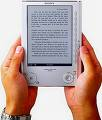 hat
is the most popular library in your city? Why?
hat
is the most popular library in your city? Why?
-
Will new technologies change the libraries and the way we learn?
-
What is an E-book?
-
What advantages do e-books have over print books?
|
Speaking |
|
Study help: Conducting a survey Surveys are extremely powerful tools that reflect the opinions/preferences, etc of the general public, a particular group of people, etc. |
and write a questionnaire. Make up five yes/no
questions about the future of libraries and books.
Decide which group you will interview
-
y
 our
fellow students
our
fellow students -
your faculty teachers and professors
-
other people(e.g. friends/family)
Count the ‘yes’ and ‘no’ responses. Take notes on the interesting comments that people make. The chart below can be used to write your questions, count responses, and record comments.
When your group meets again, summarize the information you have collected and prepare an oral report to present to the class.
|
Questions |
Yes # |
No ## |
Comments |
|
Example:
|
Yes |
No |
I’m sure, by 2050 print books will disappear just like dinosaurs and will be exhibited in museums.
Most people still have no idea how to deal with, manipulate, or manage a digital file. |
|
1. |
|
|
|
|
2. |
|
|
|
|
3. |
|
|
|
|
4. |
|
|
|
|
5. |
|
|
|
|
Functional language: Presenting somebody’s opinion It surprised us to learn that most students/professors, etc… The majority of students/people think that … A few students/of my friends have got mixed feelings about… A number of students/people are in favour of ... What we find really astonishing (about) … is …,etc.
|
|
Writing |
W rite
two
or three paragraphs
of about 150 words
to summarise the discussion on the future of libraries and books.
Give reasons to back up your own opinion.
rite
two
or three paragraphs
of about 150 words
to summarise the discussion on the future of libraries and books.
Give reasons to back up your own opinion.
|
In the Realm of Science |
-
Read and remember some of the library terms.
|
Article |
a piece of writing about a particular subject in a newspaper or magazine |
|
Autobiography |
a written account of a person’s life written by that person |
|
Archive |
a special collection or collections that house the records of organizations, governments, universities, etc. considered worthy to be kept permanently and as nearly as possible in their original form. |
|
Bibliography |
a list of books and/or other materials written by one author or on one subject and having something in common with each other. |
|
Biography |
a written account of a person’s life. |
|
Catalogue |
a complete list of literary works in a library |
|
Call Number |
the unique numbers and letters given to each item in a library used to identify and locate the item |
|
Citation |
an identifying reference to a text. Usually includes the title, author, and publishing information |
|
Edition |
the whole number of copies of a work issued from one setting of type |
|
Glossary |
an alphabetical list of terms within a subject field together with definitions. |
|
Paper |
an academic article about a particular subject that is written by and for specialists |
|
Plagiarism |
an act of copying the writings of another person and publishing the same as original work. |
|
Record |
the complete collection of related data found in an electronic catalogue or index which describes a single book or article in that database |
|
References |
a list of publications referred to by the author of a paper or book. Also called "Works Cited" or "Bibliography" |
|
Subject |
the word or phrase which describes a theme of a literary work |
|
Truncation |
using the root word in a online search to find all items containing that root and different endings |
(Adapted from the site http://library.mtsu.edu/help/terms.php)
-
Some letters of the Greek alphabet are widely used in many natural sciences especially in mathematics. Learn how to read some of them.
|
Capital and small |
Name |
English equivalent |
Russian |
|
A α |
a [′ælfə] |
a |
альфа |
|
B β |
beta [′bi:tə]/[′beitə] |
b |
бета |
|
Γ γ |
gamma [′gæmə] |
g |
гамма |
|
Δ δ |
delta [′deltə] |
d |
дельта |
|
Λ λ |
lambda [′læmbdə] |
l |
лямбда |
|
Μ μ |
mu [′mju] |
m |
ми/мю |
|
Ξ ξ |
xi [′ksai] |
n |
кси |
|
Π π |
pi [′pai] |
p |
пи |
|
Σ σ |
sigma [′sigmə] |
s |
сигма |
|
Ώ ω |
omega [′oυmigə] |
o |
омега |
What other letters from the Greek alphabet are used in your subject area?
-
Many English words and word parts can be traced back to the Greek language. The table below lists some common Greek roots. Add more words with the same root to each group.
|
Greek root |
Basic meaning |
Example words |
|
-anthrop- |
human |
misanthrope, philanthropy |
|
-chron- |
time |
anachronism, chronic |
|
-dem- |
people |
democracy, demagogue |
|
-morph- |
form |
metamorphic, morphology |
|
-path- |
feeling, suffering |
sympathy, apathetic |
|
-pedo-, -ped- |
child, children |
pediatrician, pedagogue |
|
-philo-, -phil- |
having a strong affinity or love for |
philanthropy, philharmonic |
|
-phon- |
sound |
cacophony, phonetics |
|
Unit 2 Progress Monitoring In this unit you have worked on the following vocabulary related to the topic “Information Search”
Tick (V) the points you are confident about and cross (X) the ones you need to revise. |
|
Unit 3 Review |
1. Put these instructions for truncating a URL in the correct sequence.
-
Stop when you reach the first single slash (/) which is preceded by the domain name portion.
-
This is the page's server or "publisher."
-
In the top Location Box, delete the end characters of the URL stopping just before each slash (/).
-
Press enter to see if you can see more about the author or the origins or nature of the site providing the page.
-
Continue this process, one slash (/) at a time.
2. Rewrite the sentences in passive.
a) Wilhelm Schickard made the first known adding machine.
b) MIT’s laboratories carry out a great deal of research.
c) The fact that biological sciences are more popular with school leavers than
computer science surprised me.
d) You should carefully read all the instructions before you start an experiment.
e) The NASA specialists will launch a space platform to Jupiter next year.
f) The BBC Company has released a new documentary series about space
research.
-
Spot the odd word out.
-
library internet www database
-
journal magazine periodicals newspaper
-
bibliography citation glossary references
-
call number catalogue record subject
-
Explain the similarity and difference between these words.
journal - magazine
author - publisher
paper - article
plagiarism - citation
-
Divide into five teams. Each team completes word webs for the words information (adjectives), information (verbs), book (adjectives), knowledge (adjectives), knowledge (verbs) using its own colour marker. The word webs are rotated every one minute, then the results are checked in class. The team that suggests more combinations than the others is the winner.
-
Take turns to dictate and note down the following e-mail and website addresses.


-
Read these sayings. Choose one or two you agree or disagree with and discuss them with a partner.





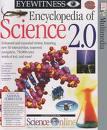

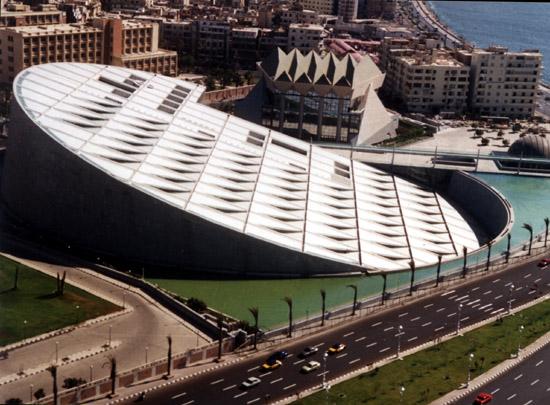
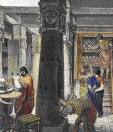 ounded
by Alexander the Great in the fourth century BC, built and
enlarged by Ptolemy I, Alexander's successor, the city's library
comprised perhaps as many as 700,000 manuscripts (the equivalent
of more than 100,000 modern printed books) - the whole corpus*
of knowledge accumulated by ancient philosophers, scientists and
poets that laid the foundations
of
Western philosophy, mathematics, science, medicine, history and
literature.
ounded
by Alexander the Great in the fourth century BC, built and
enlarged by Ptolemy I, Alexander's successor, the city's library
comprised perhaps as many as 700,000 manuscripts (the equivalent
of more than 100,000 modern printed books) - the whole corpus*
of knowledge accumulated by ancient philosophers, scientists and
poets that laid the foundations
of
Western philosophy, mathematics, science, medicine, history and
literature.
 n
2002, the Egyptian government supported the building of the
modern Bibliotheca Alexandrina near the site of the first
library. Designed by a Norwegian architect, the New Bibliotheca
Alexandrina takes the shape of a circular diaphragm wall – 160
meters in diameter and 33 meters high - representing the sun. It
consists of 11 floors with a total area of 85,405 square meters.
The walls are of grey Aswan granite, carved with characters from
120 different human scripts.
n
2002, the Egyptian government supported the building of the
modern Bibliotheca Alexandrina near the site of the first
library. Designed by a Norwegian architect, the New Bibliotheca
Alexandrina takes the shape of a circular diaphragm wall – 160
meters in diameter and 33 meters high - representing the sun. It
consists of 11 floors with a total area of 85,405 square meters.
The walls are of grey Aswan granite, carved with characters from
120 different human scripts.
 he
whole complex comprises a main reading room with seating for
2,000 readers, six specialist libraries (including Library for
the Blind and Young Peoples' Library), four museums (science,
calligraphy, manuscripts and archaeological), a public plaza, a
planetarium as well as research center and exhibition areas.
he
whole complex comprises a main reading room with seating for
2,000 readers, six specialist libraries (including Library for
the Blind and Young Peoples' Library), four museums (science,
calligraphy, manuscripts and archaeological), a public plaza, a
planetarium as well as research center and exhibition areas.